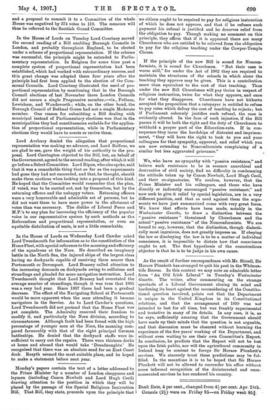In the House of Lords on Wednesday Lord Cawdor asked
Lord Tweedmouth for information as to the constitution of the Homerleet, with special reference to the manning and efficiency of the squadrons at the Nore. He described an imaginary battle in the North Sea, the injured ships of the largest class baying no dockyards capable of receiving them nearer than Portsmouth or Devonport. Lord Brassey called attention to the increasing demands on dockyards owing to collisions and strandings and pleaded for more navigation instruction. Lord Tweedmouth thought that Lord Brassey had overstated the average number of stranding% though it was true that 1905 was a very bad year. Since 1887 there had been a gradual decrease. The effect of the Navigating School at Portsmouth would be more apparent when the men attending it became navigators in the Service. As to Lord Cawdor's questions, Lord Tweedmouth did not pretend that the Home Fleet was yet complete. The Admiralty reserved their freedom to modify it, and particularly the Nore division, according to circumstances. Although fault had been found with the high percentage of younger men at the Nore, the manning com- pared favourably with that of the eight principal German battleships. He denied that the dockyard staffs were in- sufficient to carry out the repairs. There were thirteen docks at home and abroad that would take 'Dreadnoughts.' He recognised that there was an absolute need for an East Coast dock. Rosyth seemed the most suitable place, and he hoped to make a statement before next year.














































 Previous page
Previous page